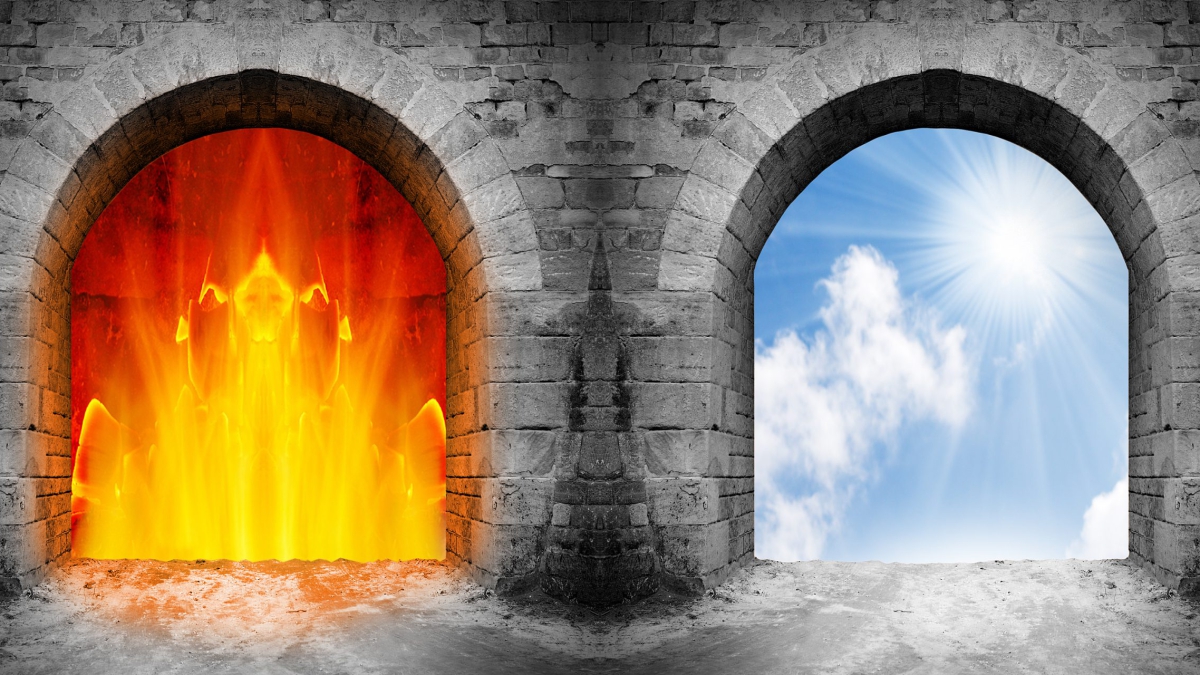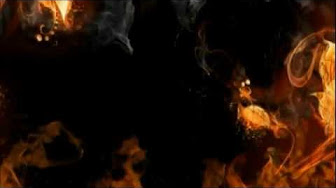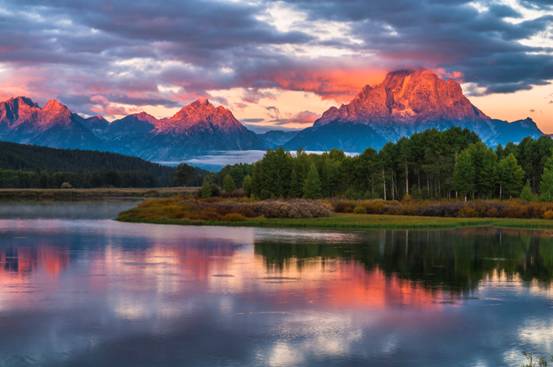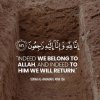DesertRose
Superstar
- Joined
- May 20, 2017
- Messages
- 7,803

Every Soul Shall Taste Death!
"Are You prepared for Death ?
Do you know what happens to you when you die?
Life slips away second by second.
Are you aware that every day brings you closer to death or that death is as close to you as it is to other people?
As we are told in the verse "Whatsoever is on it (the earth) will perish. And the Face of your Lord full of Majesty and Honour will remain forever” [al-Rahmaan 55:26-27] “Every soul shall taste death in the end; to Us shall you be brought back.” (Surat al-‘Ankabut: 57)
Everyone who has ever appeared on this earth was destined to die.
Without exception they all died, every one. Today, we hardly come across the traces of many of these people who passed away. Those currently living and those who will ever live will also face death on a predestined day.
Despite this fact, people tend to see death as an unlikely incident.
Think of a baby who has just opened its eyes to the world and a man who is about to breathe his last. Both had no influence on their individual birth or death whatsoever.
Only God possesses the power to inspire the breath of life or to take it away.
All human beings will live until a certain day and then die; God in the Qur’an gives an account of the attitude commonly shown towards death in the following verse: Say: “The death from which you flee will truly overtake you: then you will be sent back to the Knower of things secret and open: and He will tell you (the truth of) the things that you did!” (Surat al- Jumu’ah: 8)
The majority of people avoid thinking about death. In the rapid flow of daily events, a person usually occupies himself with totally different subjects: what college to enroll in, which company to work for, what color of clothing to wear next morning, what to cook for supper; these are the kinds of major issues that we usually consider.
Life is perceived as a routine process of such minor matters.
Attempts to talk about death are always interrupted by those who do not feel comfortable hearing about it.
Assuming death will come only when one grows older, one does not want to concern himself with such an unpleasant subject. Yet it should be kept in mind that living for even one further hour is never guaranteed.
Everyday, man witnesses the deaths of people around him but thinks little about the day when others will witness his own death. He never supposes that such an end is awaiting him!
Nevertheless, when death comes to man, all the “realities” of life suddenly vanish. No reminder of the “good old days” endures in this world. Think of everything that you are able to do right now: you can blink your eyes, move your body, speak, laugh; all these are functions of your body. Now think about the state and shape your body will assume after your death.
While all this is taking place in the world, the corpse under the soil will go through a rapid process of decay.
Skin and soft tissues will completely disintegrate. The brain will decay and start looking like clay. This process will go on until the whole body is reduced to a skeleton.
However, our beloved prophet, Muhammad (PBUH), was reported to have said that the dead body of prophets, pious people and martyrs would not decay in the grave and that there is enjoyment in the grave just as there is punishment in it. There is no chance of going back to the old life again.
Gathering around the supper table with family members, socializing or to having an honorable job will never again be possible.
In short, the “heap of flesh and bones” to which we assign an identity faces a quite nasty end. On the other hand, you – or rather, your soul – will leave this body as soon as you breathe your last.
The remainder of you – your body – will become part of the soil. Yes, but what is the reason for all these things happening? If God willed, the body would never have decayed in such a way. That it does so actually carries a very important inner message in itself.
(36:12) – Verily, We shall indeed bring the dead back to life, and We shall record whatever [deeds] they have sent ahead, and the traces [of good and evil] which they have left behind: for all things do We take account in a record clear. [Asad]
(17:13) – And We have fastened every man's deeds to his neck, and on the Day of Resurrection, We shall bring out for him a book which he will find wide open. [Hilali & Khan]
(17:14) – [and he will be told:] “Read this thy record! Sufficient is thine own self today to make out thine account!” [Asad]
(6:15, 10:15) – Behold, I would dread, were I [thus] to rebel against my Sustainer, the suffering [which would befall me] on that awesome Day [of Judgment]. [Asad]
(2:284) – Unto God belongs all that is in the heavens and all that is on earth. And whether you bring into the open what is in your minds or conceal it, God will call you to account for it. [Asad]
(13:11) – Verily, God does not change men's condition unless they change their inner selves. [Asad]
(11:5) – Oh, verily, they [who are bent on denying the truth of this divine writ] are enshrouding their hearts in order to hide from Him. Oh, verily, [even] when they cover themselves with their garments [in order not to see or hear], He knows all that they keep secret as well as all that they bring into the open - for, behold, He has full knowledge of what is in the hearts [of men]. [Asad]

Al-barzakh (the interval between his death and the Day of Resurrection)

Play all
The Hereafter Series
HereafterSeries
10 videos Last updated on May 18, 2019
Play all
Shuffle
In this series, we will attempt to take you on a journey through the hereafter. The journey starts with Death followed by the torment of the grave then continuing on to the Day of Reckoning, followed by a description of hellfire and those that will enter it and then followed by a tour of Paradise and those whom will enter it and finally finishing off the journey with The Day of Increase and on which the inhabitants of Paradise will receive a gift beyond all comprehension.
1

9:50
Death In Islam - What Happens When you die? Hereafter Series 1of14
HereafterSeries
•
2

9:59
The Hereafter P2 - Death - The Grave - Day of Reckoning - Hell - Paradise
HereafterSeries
•
3

9:52
The Hereafter P3 - Death - The Grave - Day of Reckoning - Hell - Paradise
HereafterSeries
•
4

9:53
The Hereafter P4 - Death - The Grave - Day of Reckoning - Hell - Paradise
HereafterSeries
•
5

9:52
The Hereafter P5 - Death - The Grave - Day of Reckoning - Hell - Paradise
HereafterSeries
•
6

9:52
The Hereafter P6 - Death - The Grave - Day of Reckoning - Hell - Paradise
HereafterSeries
•
7

9:57
The Hereafter P7 - Death - The Grave - Day of Reckoning - Hell - Paradise
HereafterSeries
•
8

9:53
The Hereafter P8 - Death - The Grave - Day of Reckoning - Hell - Paradise
HereafterSeries
•
9

9:43
Now playing
The Hereafter P9 - Death - The Grave - Day of Reckoning - Hell - Paradise
HereafterSeries
•
10

9:47
Now playing
The Hereafter P10 - Death - The Grave - Day of Reckoning - Hell - Paradise
HereafterSeries
The Creator is the Most Merciful and The Most Compassionate if you have the right faith and sincerely repent our record will be wiped clean.
•
Last edited:

_001.jpg)


_001.jpg)



_001.jpg)







